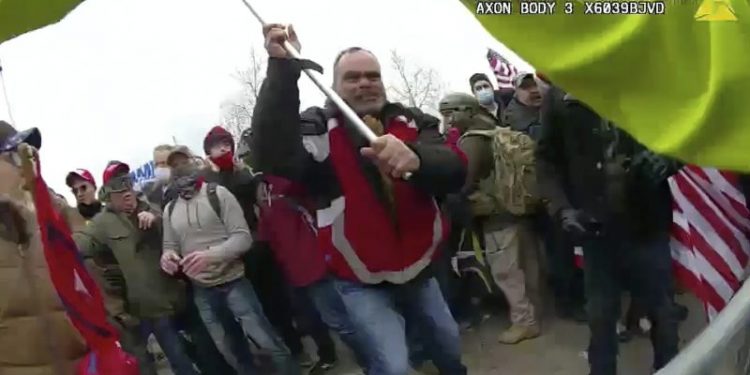The D.C. Circuit Considers Claim of Jan. 6 Jury Bias Ahead of Trump Trial
The events of January 6th at the United States Capitol continue to reverberate through the halls of justice as former President Donald Trump faces potential impeachment for inciting the deadly insurrection. However, as preparations for the trial proceed, a significant development has emerged – the D.C. Circuit Court of Appeals is now considering a claim of jury bias in relation to the individuals who will ultimately decide Trump’s fate.
It is no secret that Trump’s defense team has been vocal in their concerns surrounding the impartiality of the jury pool that will sit in judgment of the former president. These concerns have been amplified by explosive reports that detail alleged misconduct by jury members during the initial stages of the jury selection process.
The jury bias claim centers around allegations that certain potential juror’s social media activity suggests a preconceived bias against the former president. Such biases, if proven to be true, could potentially impact the fairness of the trial and call into question the principle of an unbiased jury.
In the weeks leading up to the trial, the defense team has submitted a motion to the D.C. Circuit Court requesting that the jury selection process be revisited and that the court investigate possible juror bias. They argue that the alleged biases flagged by the defense are not inconsequential, but rather indicative of a systemic issue that could unfairly taint the trial.
The D.C. Circuit Court has responded to this motion by agreeing to consider the claim of jury bias. This development is significant as it acknowledges that the question of impartiality is a legitimate concern to be addressed before proceeding with the trial. It also underscores the importance of upholding the principles of due process, even in high-profile cases such as this.
If the court finds that there is merit to the claim of jury bias, it could result in various outcomes. One possible scenario is that the court orders a new jury selection process, ensuring that a fair and impartial group of jurors is empaneled. Alternatively, the court may allow the trial to proceed but implement measures to mitigate any perceived biases, such as intensive questioning of prospective jurors during the voir dire process.
Regardless of the court’s ultimate decision, the claim of jury bias highlights the challenges faced in ensuring a fair and impartial trial, particularly in cases of national significance. The unprecedented nature of the events of January 6th and the polarization it has caused in American society make it imperative to safeguard the integrity of the trial proceedings against any potential taint of bias.
Moreover, this development also reinforces the broader conversation around the role of social media in impacting judicial processes. As more individuals publicly express their opinions and beliefs on various platforms, the inherent risk of bias infiltrating jury pools becomes more apparent. Courts must grapple with the complexities of juror vetting in an increasingly interconnected world, while ensuring that principles of fair trial and justice are upheld.
As the D.C. Circuit Court deliberates on the claim of jury bias, its decision will set a significant precedent for future high-profile trials. The outcome will not only influence the Trump impeachment trial but may also have far-reaching implications for the administration of justice in cases of similar magnitude.
In conclusion, the consideration of jury bias in the proceedings leading up to the Trump trial demonstrates the importance of maintaining the highest standards of fairness and impartiality in our justice system. The D.C. Circuit Court’s decision on this matter will shape the path forward, providing valuable guidance on addressing juror bias in an era marked by intense scrutiny and polarization.

















